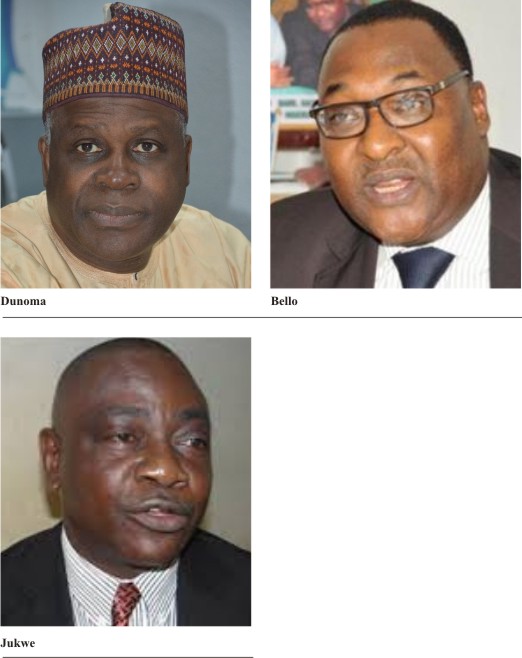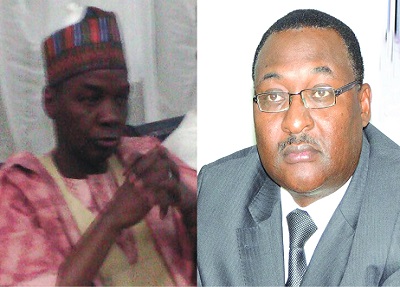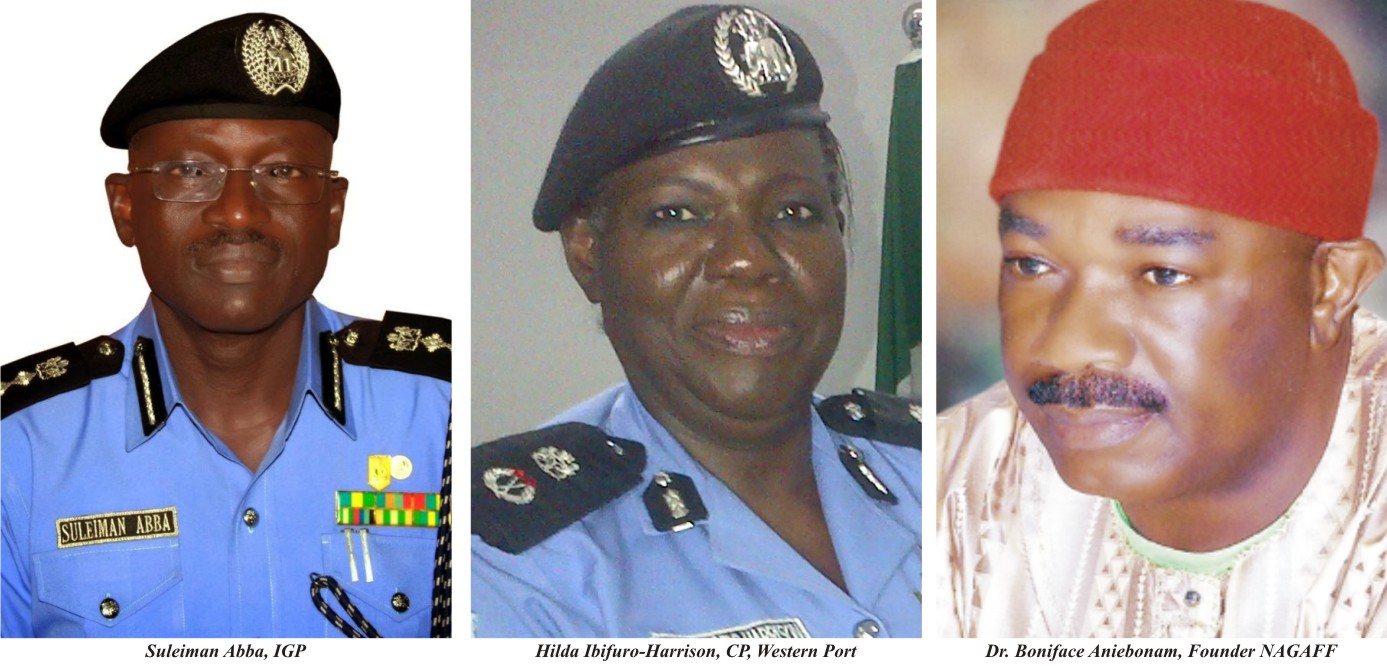Q1 Transport Sector Rating: How NSC, FAAN, NCAA, CRFFN, Others Fared
By Kenneth Jukpor & Oyeniyi Iwakun
Last week we presented the scorecard of some transport agencies based on their performance in the first quarter of 2018 with regards to their core functions. The appraisal continues here as we x-ray Nigerian Shippers’ Council (NSC), Federal Airports Authority of Nigeria (FAAN), Nigerian Civil Aviation Authority (NCAA), Council for the Regulations of Freight Forwarders of Nigeria (CRFFN), Maritime Academy of Nigeria (MAN) Oron, amongst others.
For the grading system: A =90-100%, B+ = 80-89%, B =70-79%, C+ =60-69%, C =50-59%, D =40-49% and E = 30-39%, F = 0-30%. Enjoy it:
Nigerian Shippers Council (NSC)
For the purpose of this report, only the functions of the Nigerian Shippers’ Council as Port Economic Regulator would be analyzed. There are ten (10) functions and each carries 10points;
• Provide guidelines on tariff setting in order to guide against arbitrariness
Brimming with confidence after the Court of Appeal in Lagos gave a judgment in favour of the Council in the suit instituted by shipping companies and terminal operators against the Council; the Council has begun serious deliberations on tariffs, visiting three shipping companies last week with a clear mandate to regulate tariffs in order to reduce the cost of using shipping services. The Council is also set to sign a Memorandum of Understanding (MoU) with shipping companies to ensure frequent interactions and effective regulation of tariffs.Score = 6/10
• Monitor and enforce standards of service delivery to ensure availability, accessibility, affordability, stability, predictability and adequacy of services
Shippers’ Council hasn’t been able to negotiate or standardize freight rates for trucking, trains or carriage of goods via the waterways. However, the Council sealed the premises of GAC Shipping Nigeria Limited for about three hours over alleged seizure of 50 containers of raw materials for production belonging to Nestle Nigeria Limited. This followed a petition received from JOF Nigeria Limited – a logistics company said to be clearing goods for Nestle. The company had complained that GAC refused to release its containers since the goods arrived the country since March 7, 2018. It was gathered that the shipping line had insisted on not releasing the 50 containers on the argument that JOF failed to return its empty containers on time. Score = 6/10
• Encourage competition and guard against the abuse of monopoly and dominant market positions; This role has received more attention by the Council in the first quarter of 2018 compared to 2017; with the Council striving to ensure a level playing field for all stakeholders Score = 4/10
• Perform mediatory role among stakeholders;
The Council was able to perform the role of an intermediary and an unbiased umpire amongst the industry stakeholders Score = 8/10
• Establish accessible and modern dispute resolution mechanism
The Port Service Support Portal and Standards Operating Procedures initiated by the Council in 2016 led to easy dispute resolution and seamless accessibility for all port stakeholders) Score = 8/10
• Regulate market entry and exit
Nothing to report on this aspect Score = 0/10
• Promote efficiency in the provision of port services
The Council has been able to engage several service providers like freight forwarders, truckers, Customs, terminal operators, etc on the need to promote efficiency but few improvements were recorded because inefficiency earns some stakeholders like terminal operators, shipping lines and dubious Customs officers more money. Score = 5/10
• Minimize high cost of doing business and prevent its inflationary effect on the Nigerian economy
This role has received a massive push by the Council in the first quarter with NSC engaging several service providers on the need to minimize cost. NSC has began moves to stop the era of collecting container deposits by shipping companies. However, the ripple effect of these actions by Shippers’ Council is yet to be felt in terms of reduction in cost of doing business at the ports. Score = 4/10
• Encourage private sector investment in the port sector
The Council was seen to play this role actively in soliciting sponsors and facilitators for the Inland Container Depots and Truck Transit Parks so far this year. Score = 7/10
• Monitor and ensure compliance by all parties with the provisions of the Port Concession Agreements
This role was also ridiculed by court cases but the backing of the Appeal Court has given the Council the legal teeth to ensure compliance. However, there is nothing significant to report in this area at the moment. Score = 3/10
Conclusion:
The Council has attacked its core functions in the first quarter of 2018 with more seriousness than it did throughout 2017. Several efforts have been made to engage stakeholders ranging from port service providers, security agents, Inland Dry Port operators, Truck Transit Park facilitators, among others. The Council has also begun clamping down on erring companies and dishing instructions for the economic good of the nation as well as investors. The Council should thrive to build on this modest success.
Grade = C (51%)
Nigerian Civil Aviation Authority (NCAA)
Nigerian Civil Aviation Authority (NCAA) would be assessed based on five cores responsibilities with each function carrying 20points.
In the area of regulating the safety of aircraft operations, air navigation and aerodrome operations, NCAA performed fairly in early part of 2018. Speaking with journalists recently, the Director-General of NCAA, Capt. Muhtar Usman noted that 2018 had been turbulent in the global aviation industry generally with incidences and accidents but none has resorted into any fatality or any serious injury in Nigeria even as he assured that the regulatory agency would sustain and improve on the safety level in the past years while the safety recommendations of Accident Investigation Bureau (AIB) would be followed to the letter in order to improve safety in the system.
Score: 6/20
Monitoring aircraft operating environment for safety and security
Although there were reports of repeated burglaries and theft in the Lagos airport early in the year but NCAA seem to have put some machineries in place to checkmate such incident. NCAA has intensified surveillance via checking, rechecking, training, retraining, and inspections as much as possible to avoid recurrence of whatever happens is in the past on the operating airlines in the country following incidents that occurred in the nation’s aviation industry in the first quarter of 2018. Its inspectors are made to monitor the activities of the airlines more especially at the ramp areas, it is expected to continue to sustain and improve on the current safety level in the industry.
Capt. Usman recently pointed out that NCAA would continue to adhere strictly to the eight critical elements of the International Civil Aviation Organization (ICAO) in order to prevent an accident from happening in the system, adding NCAA had consistently carried out safety oversight functions of operating airlines in the country.
Score: 8/20
In the performance of the responsibility of regulating methods of entry and conduct of air transport business: NCAA insisted that no matter the current safety level, it would not rest on its oars, but would continue to beam its searchlight on all operators in order to prevent disaster. Meanwhile, there seem to be some unpopularity in the performance of this function in the real sense.
Score: 3/20
NCCA also have the major role of balancing the economic interest of operators, users of aviation services as well as the general public and the nation as a whole: One could see the arbitrary charges and obvious extortion of passengers by operators who increase their charges at will little or no regulation or check by NCAA. Only recently that the Consumer Protection Council (CPC) came to the aid of passengers that NCAA DG picked offence and accused CPC of usurping NCAA duties.
Score: 2/20
Setting of Aviation Training Standards and approval of Training Institutions: The industry may have compromised some of these core responsibilities. Although there are some commendations in 2017 that boosted the image and rating of the sector but it cannot be said to have reached the optimal trainings and necessary standards expected from NCAA. The aviation training institutes in Nigeria are nothing to write about.
Score: 3/20
Conclusion
The industry recorded some incidences at the airside early in the year in review that could have hampered air safety. This includes the poaching of passenger luggage on light aircraft that were in motion among others. Also, with the certification of two Nigerian airports in 2017, Lagos and Abuja airports, Nigeria’s rating has improved and these airports can also serve as hubs in West and Central Africa because they are the only certified airports in the sub-regions. Much is expected in the second quarter of 2018.
Total score: 22/100.
Grade = F (22%)
Federal Airport Authority of Nigeria (FAAN)
FAAN is a service organization statutorily charged to manage all Commercial Airports in Nigeria and provide service to both passenger and airlines. It generates revenue from both aeronautical and non-aeronautical sources in the ratio 82:18.
FAAN is entrusted with the following functions:
- To develop, maintain and provide necessary airport services and facilities for safe, orderly, expeditious and economic operation of air transport.
Since the repairs of the Abuja airport runways which also necessitated the reforms at Kaduna airports, no significant improvement has been recorded in any of the major airports in the first quarter of 2018. Score = 5/20
- To provide adequate conditions under which passengers and goods may be carried by air and under which aircraft may be used for other gainful purposes and prohibiting the carriage by air goods of such classes as may be prescribed.
In the first quarter of 2018, it has been business as usual for FAAN with this function given no attention to change the abysmal status quo.Score = 3/20
- To provide accommodation and other facilities for the effective handling of passengers and freight.
Whilst the Managing Director, Engr. Saleh Dunoma said in a recent meeting that FAAN was working on providing new facilities and infrastructure; nothing can be seen at the moment to support his argument.
“In Lagos, we are building a new terminal and extending the apron. As long as we keep developing the airports, we have to keep also improving on CCTV coverage. We are working on CCTV coverage in all the international airports with additional infrastructure. It is a continuous thing and not only that, priorities might also change from operations and security departments” he said. Score = 5/20
- To carry out at the airports (either by itself, its agents or in partnership with any other person) such other commercial activities which are not relevant to air transport.
FAAN recently played host to the Airport Council International Conference 2018 which ended last week. The theme of the conference was “Business Transformation for Sustainable Development of African Airports”. The conference discussed the need for a change in the perception of business in African airports, to improve the profitability of infrastructure, optimize resources, generate profits and ensure the sustainability of the business. Score = 10/20
- To provide adequate facilities and personnel for effective security at all airport.
FAAN’s Managing Director recently admitted that Nigerian airports must have a robust access control system, stating that all airports should be fenced quickly. He promised to introduce perimeter patrol; CCTV technology to help in the surveillance at the airports. While the CCTV projects across the airports have been completed, developments of the perimeter fencing these are yet to commence. Score = 15/20
Conclusion
There are several areas where FAAN has to take significant steps to improve the nation’s airport infrastructure, security and regulate tariffs but the first quarter has very few achievements to shout about.
Total Score 38/100
Grade E (38%)
Council for the Regulations of Freight Forwarders of Nigeria (CRFFN)
CRFFN is established to address the complexities and global demands in the import and export business as it relates to freight forwarders and clearing agents is saddled with the responsibility of regulating and controlling the practice of freight forwarding, and promoting the highest standard of competence, practice and conduct among members of the profession.
CRFFN since inception, have been rocked with various crisis and challenges which includes policies inconsistencies. They have been unable to make any remarkable impact ever since its establishment about five years ago.
MMS Plus would score CRFFN based on its performance of five identified statutory functions below in the first quarter of 2018 with each point carrying 20 marks.
Accrediting, regulating and controlling associations of freight forwarders to ensure professionalism in the industry:
Nothing was heard about this role in the first quarter of 2018. CRFFN itself lacked internal cohesion to the extent that freight forwarding Associations were rocked with intra and inter union crisis especially as regards professional operators fee (POF) collection. There are several court cases in this regards. Most freight forwarders still conduct themselves in unprofessional manners. Meanwhile, CRFFN intervention in Association of Registered Freight Forwarders Nigeria (AREFFN) where it recognized the Dr. Frank Ukor led executive as the authentic leadership of the association as against the one led by the Interim National President, Alhaji Bala Lawan Daura seemed to have brewed more crisis in the union until recently where it retraced its steps to douse tensions in the union. Score: 2/20
To determine who constitute freight forwarders and to regulate and control the activities of registered practitioners:
This role lacks remarkable attention in 2018 first quarter. Most of freight forwarding profession practitioners still do not have CRFFN certification and CRFFN is doing nothing to checkmate this, hence the difficulties in monitoring their activities. The profession remained unregulated as at first quarter. Score = 2/20
Ensuring Uniform standards of professional conduct and education relevant to freight forwarding practice:
Reverse remains the case in early 2018. The freight forwarding business is still short of basic ethics expected of the profession. CRFFN failed to institute a uniform and acceptable standard of operation. CRFFN failed to encourage and enforce the need for educational acquisition in globally obtainable standards of freight forwarding practices. However, there are promises by the newly constituted board to ameliorate this issue. Score: 2/20
Encouraging participation in international exchange programme and promoting the highest competence, practice and conduct among members:
Those CRFFN ought to regulate are the ones still regulating CRFFN. The constitution of the CRFFN has even been faulted by industry stakeholders. There is still no notable event or programme marked out to promote the above roles. The highest level of mediocrity was exhibited when the 2018 budget was duplicated and unprofessionally written as discovered by the National Assembly. Score: 2/20
Establishment and maintenance of registers of persons entitled to practice as registered freight forwarders and the publication from time to time of the list of such persons:
The records of registered freight forwarders are still in abstraction. Most importers and exporters still fall victims while transacting with people who aren’t professional freight forwarders or have little knowledge of the practice. Entrusting their consignments and other transactions with them put them at a greater risk. Score: 2/20.
Conclusion
CRFFN hasn’t achieved in terms of the objectives upon which its foundation was laid. One would expect that things would have moved forward. The CRFFN newly constituted board is set to be short of the stipulations of its act in 2007. There were allocations from the coffers of the federal government for its management and administration but nothing tangible can be shown for the huge amount of money. There seems not to be any seriousness to get people on board everything seems to be on standstill, hence, the clamour for the election of a new chairman. CRFFN is still unable to conduct election in the first quarter of 2018 on grounds of funds shortage but stakeholders still express suspicion and accuse CRFFN of foul play.
Total Score = 10/100
Grade F (10%)
Maritime Academy of Nigeria (MAN) Oron
The Maritime Academy of Nigeria was rocked with series of crises in 2017 with the Minister of Transportation setting-up a steering committee to development a working template for running the academy after it had been moribund for years. The Interim Management Committee has however submitted their reports to the Minister of Transportation, Rt. Hon Rotimi Amaechi early this year.
There is shortage of manpower, especially in terms of lecturers or facilitators in the Academy as the lecturer-student ration is horrible. The ratio is one lecturer to 90 students. Sometimes it is one lecturer to 200 students. The lecturers are limited in such circumstance and that is why the management had decided to stop admission of applicants into the academy this year. There are also massive infrastructure deficits. It was reported that some cadets sleep on the floor.
The Academy which was on the verge collapsing as a result of its continuous act of churning-out half-baked cadets due to lack of training equipments and dearth of skilled workforce had been restructured to an extent by the IMC.
According to the Rector of the Academy, Commodore Emma Effedua (Rtd), the IMC has also helped re-organize the academy because the International Maritime Organization (IMO) was already trying to delist the academy from its White List and since the re-structuring commenced, the IMO had visited the academy including the United Nations Institute for Training and Research (UNITAR) and the Nigerian Maritime Administration and Safey Agency (NIMASA).
The committee which was chaired by the former Managing Director of Nigerian Ports Authority (NPA), Chief Adebayo Sarumi had dished out its recommendations to the Transport Minister, who upon acceptance of the report charged them to transform the academy.
Things are expected to turnaround in the second quarter of the year 2018
Total Score 32/100
Grade E (32%)








